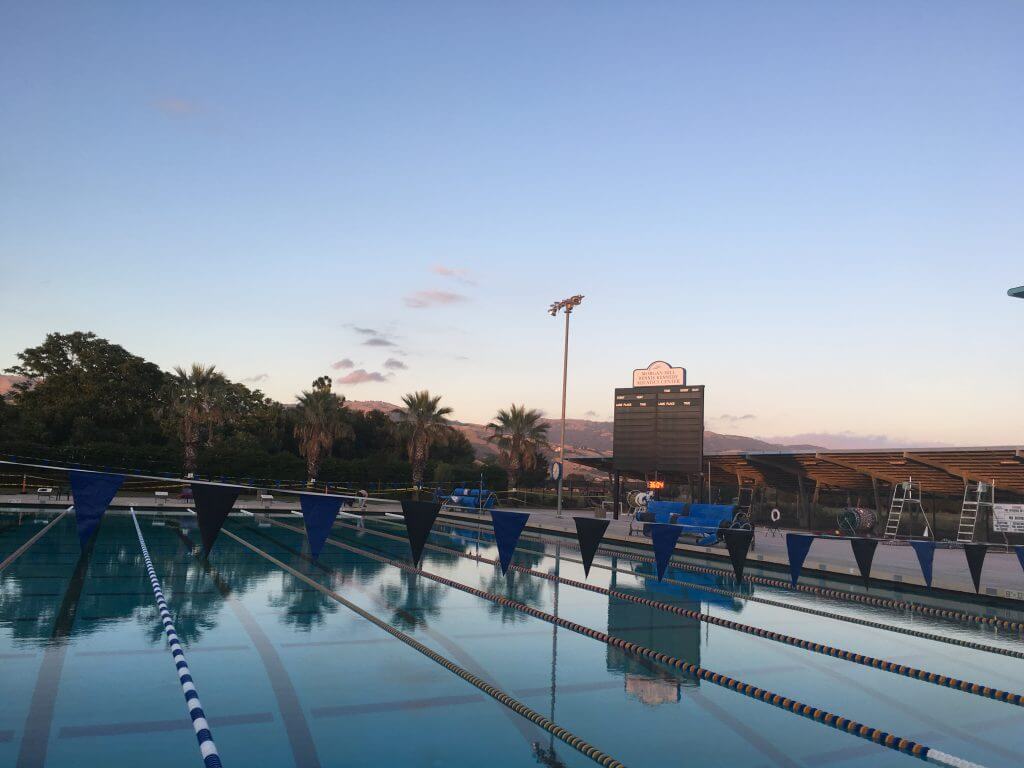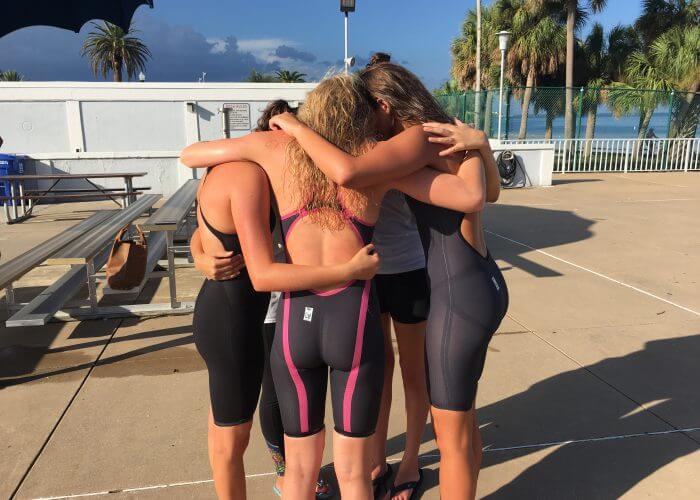Middle Eastern Swimmers Know Not All Opportunities Are Created Equal

By Maddie Strasen, Swimming World College Intern
It’s 4:45 a.m. It’s pitch black outside—the sun has yet to rise. You debate in your head whether to turn off your alarm and go back to bed or endure the pain of morning practice. You unwillingly get out of your warm bed and face the freezing cold air, put on your suit, grab your swim bag, and walk out the door. You grumpily mope onto the pool deck, mumble complaints to your teammates, smell the overbearing stench of chlorine, and send death glares to your coach.
It’s 5 a.m. You dive into the cold water, questioning why you chose a sport that requires early mornings, late nights, and excessive discomfort. You go through the motions of warm-up and the pain of your main set. You cool down, dry off, and get ready to go to school. It’s 7 a.m. You’re in the United States of America.
It’s 4:45 a.m. It’s pitch black outside—bombs have gone off again. You debate in your head whether to go outside, fearing for your life, or to close your eyes and pray for peace. You reluctantly slide out of bed, careful not to wake your sister next to you, grab your swim equipment, and walk outside into the ashy air. You cough as you walk onto the pool deck, noticing new holes in the walls from recent attacks and smelling the overbearing stench of smoke.
It’s 5 a.m. You dive into the water, wondering if the facility is a safe place to swim today, if your family is safe at home, and why you chose to participate in sports at all, for it puts you in potential danger. You try to push those thoughts out of your mind as you train, for you don’t know when your next time in the water will be. You finish a short practice and quickly rush back home, worrying about taking care of your family. It’s 7 a.m. You’re in Syria.
Athletes around the world lack the resources to train in an environment that fosters excellence. Yusra Mardini, Syrian refugee and Olympic swimmer, opened up about her training experience before she fled to Germany.
“Sometimes we couldn’t train because of the war,” Mardini explained, “or sometimes we had training and there was a bombing in the swimming pool.” Not only was the outside world a detriment to Syrian athletes and their training, they also “didn’t have the materials and the support” to help swimmers like Mardini reach their fullest potential. “Sometimes the water was cold; we didn’t have anything to warm it up,” she said, seeming even more grateful for the resources provided to her once she began training in Western Europe. The combination of war, dangerous streets and lack of resources causes many great athletes to give up their training.
In addition to danger and resource issues in the Middle East, many countries lack the Westernized views that allow women to participate in sports at all. Sports such as competitive swimming remain controversial due to the social backlash women and girls might experience by showing too much skin or sharing training facilities with men. In countries that enforce strict religious or social rules mandating that women cover their bodies, it proves difficult and often impossible for women to find proper swimwear to train competitively. Many countries do not have women on their country’s national team because of social norms in those nations.

Photo Courtesy: Lisa Minnis
Take a moment to think about your training conditions—the pool, the starting blocks, paddles, pull buoys, kickboards, parachutes, caps, goggles, and even aspects that go unnoticed, like pool heaters and chillers or the backstroke flags.
Think about your transportation to practice, the money spent on pool use or equipment, and all the time spent with your closest friends, competing and doing what you love to reach your goals. Now try to recall the last time you complained about practice or the sport itself. Whether it was this morning, yesterday, or last week, chances are swimming has taken so much of your time and energy that you can’t help but complain every once in a while.
Swimmers in all parts of the world sacrifice time, money and energy on the sport, but those in many countries sacrifice all this and more, all the while risking their lives training in public places, or simply getting to practice. Women in many countries can only dream of an opportunity to participate in sports—can only imagine the thrill of racing through the water.
Food for thought the next time that 4:45 alarm goes off and you feel like throwing in the towel.




WOW what a great article so eye opening
Amazing article, just simply shows how much hard work and dedication each athlete goes through.
If only more people could see the “luxuries” we as Americans take for granted! Sometimes its all about perspective! Good job, Maddie!